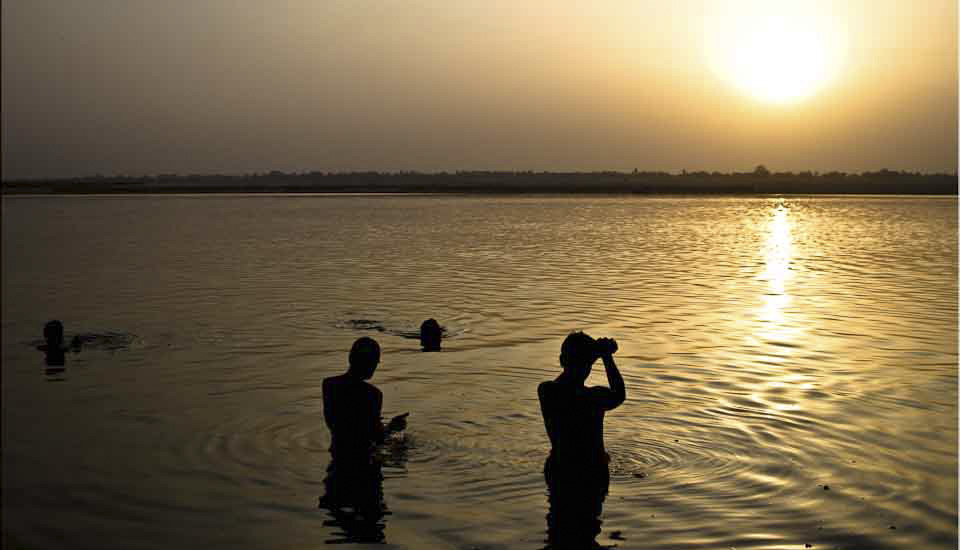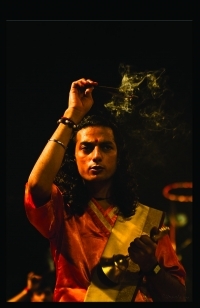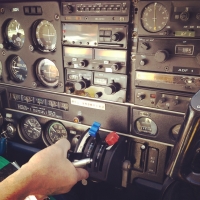.jpg)
Ad Deir (The Monastery), Petra, Jordan
It’s a hot, steep, and dusty climb to The Monastery, one of Petra’s most magnificent monuments. The 2000+ year-old carved structure stands 45 meters (148 ft) tall and 50 meters (160 ft) wide, dwarfing the tourists in the forecourt.
Petra! It was a dream come true.
This ‘rediscovered’ ancient city was built by the Nabateans some time around 300 B.C. Situated roughly halfway between the Red Sea and the Dead Sea in what is now Jordan, the city was at an important trading crossroads between Arabia, Egypt, and Syria-Phoenicia. It grew rich from hosting passing caravans laden with frankincense, myrrh, and exotic spices.
In addition to being a busy, lived-in space and the capital of the Nabatean Empire, Petra was a place of reverence and worship. UNESCO-listed for “Outstanding Universal Value” since 1985, and considered ‘one of the world’s richest and largest archaeological sites’, the dramatic landscape of variegated sandstone is dotted with soaring temples and tombs which are half-built, half-carved into the surrounding mountains and gorges.
One of the most elaborate of these temples is Ad Deir (ad-Dayr, el-Deir), the Monastery: a façade believed to have been carved out of the sandstone rock face for religious purposes. It dates to the 1st century BC and was dedicated to Obodas I. At 45 meters (148 ft) tall and 50 meters (160 ft) wide, it is Petra’s largest monument – and is breathtakingly beautiful in its Hellenistic-inspired simplicity.
Ad Deir is most easily reached via an old processional path: the Petra Monastery Trail. The track is 2.5km (1.6 miles) return from the end of the Petra Main Trail (4km / 2.5mi) at the ancient city center. The internet differs regarding the difficulty of the access: it is variously rated as a ‘medium walk’ or a ‘steep climb’, with between 850 and 900 uneven stone steps climbing almost 200 m (72 ft).
I was determined to make the trek, but was feeling somewhat daunted by the heat, my own limitations, and by those reports. So, I allowed ample time, packed plenty of water, and carried my hiking pole (my knees do not like stairs!). I had arrived into Petra early morning, and after walking through the Siq, I hiked from The Great Temple up and around the Byzantine Church (see: Patterns in the Siq) before starting out for the Monastery.
The Monastery Trail was hot – and it was steep and uneven. But, I had my cameras and there was so much to see that I could stop to take pictures whenever I needed a breather.
To be honest, I can’t remember how long it took me, but it was SO worth it!
.jpg)
The Great Temple
My walking loop around the Byzantine Church ended back at The Great Temple (see: Patterns in the Siq), the largest freestanding architectural complex in Petra. Started some time toward the end of the 1st century BC, it is believed to have been completed in the first century CE, under the King Aretas IV. It was only uncovered in 1993, and in spite of the name, it is thought to have been a royal reception hall.
.jpg)
Ancient Rubble
The whole site is still undergoing careful excavation; archaeologists estimate that only five percent of the city has been uncovered.

Hut in the Hill
Some of the structures built into the sandstone cliffs look quite recent.

Donkeys on the Path
For those who don’t want to walk, there are donkeys for hire – but they look so dainty that forcing them to carry over-sized tourists seems cruel.

Multi-Hued Landforms and Stairs

The Procesional Stairs
The lower stairs are quite level-looking, but you still have to watch for loose stones and donkey turds.

Worn Stairs
Before long, however, the steps become more treacherous …

Leaning Rocks
… and you have to thread yourself through tunnels …

Walkers on the Path
… created by large, leaning boulders.

Colourful Rocks and Greenery
I just couldn’t get over the beauty of the striations and colours in the sandstone.

Weathered Entrance to a Rock Chamber
Tombs and rock chambers are dotted all over the hillside.

Trail to Ad Deir
The path continues upward.

Donkeys on the Up-Hill
Personally, I enjoy a walk, and wouldn’t entertain riding one of these dainty donkeys – especially when there are still reports of poor treatment.

Shawls and Carpets on the Steps
Nestled into corners, Bedouin traders are ready to tempt you with their wares.

Swirls of Colour

Donkey Waiting
You can change your mind about donkey transport at many points up the hill.

Bedouin with his Earpods
The traditionally nomadic Arabs who have long inhabited these desert regions have embraced the modern age.

The Monastery
And finally! There it is!!

Coffee at The Monastery
What better reward for a hot, hard walk? I treated myself to an Arabic coffee and sat in awe of that magnificent carved sandstone monument. (iPhone6)

“The Best View in the World”
It is hard to argue with the sign …

Overlooking the Monastery and the Hills of Petra
… when it leads you to this!

Another Donkey
This donkey seems to be enjoying the view as well.

Portrait of a Young Bedouin

Man on a Donkey
Too soon it is time to work my way back down the hill – trying to stay out of the way of the donkey trains as I go.

Portrait of an Elderly Woman

Donkeys on the Trail to Ad Deir
There are still plenty of people climbing the trail as I pick my way carefully down.

Nature’s Artworks : Sandstone Sculptures

Heading Back
Back in the centre of the ancient city, actors in Roman uniform who are returning to the Great Temple share the path with tourists.

Me on a Bedouin Pony
There is a clear demarcation of animals at Petra: the donkeys handle outer trails; camels are found around the Treasury; horse carts travel through the Siq, and ponies operate between the entrance, and the start of the Siq.
There are ongoing concerns about animal treatment at the site, but these days there are mechanisms for reporting animal abuse, and handlers are aware that the spotlight is on them.
A pony ride to or from the Visitor Center is included in the entry fee – with the caveat that you tip the owner $5US! I had reservations about using my ride ticket … but, I had walked a lot, and was hot and tired – and the handler was very persuasive!
When in Petra …
Until next time,
Happy Trails!
Pictures: 16October2019

































.png)

